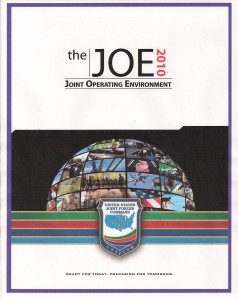Message from sender:
I am sure they do see a threat. If the Pentagon were not engaged in such a broad spectrum of illegal and corrupt practices wikileaks would not be seen as such a threat.
Phi Beta Iota: We ran this story earlier, but now that the New York Times is running it, it merits emphasis in conjunction with the other two “OUT OF CONTROL” posts. The Pentagon is nuts on the inside and criminal on the outside” They have lost sight of their mission, their roots within the Republic, and their responsibility to be responsible. Wikileaks, in sharp contrast, is an non-profit organization funded by human rights campaigners, investigative journalists, technologists and the general public.
Pentagon Sees a Threat From Online Muckrakers
By STEPHANIE STROM March 18, 2010
WikiLeaks.org, a tiny online source of information that governments and corporations would prefer to keep secret, published an Army report about itself.
To the list of the enemies threatening the security of the United States, the Pentagon has added WikiLeaks.org, a tiny online source of information and documents that governments and corporations around the world would prefer to keep secret.
The Pentagon assessed the danger WikiLeaks.org posed to the Army in a report marked “unauthorized disclosure subject to criminal sanctions.” It concluded that “WikiLeaks.org represents a potential force protection, counterintelligence, OPSEC and INFOSEC threat to the U.S. Army” — or, in plain English, a threat to Army operations and information.



 Tim Stevens
Tim Stevens